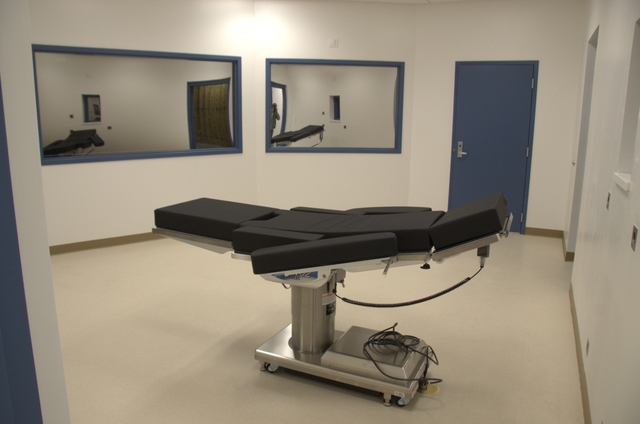Ironies abound in Nevada Assembly in debate over the death penalty

CARSON CITY
There are so many ironies, hypocrisies and confusions surrounding the death penalty, one scarcely knows where to begin.
Start with the fact that we punish people for unlawfully killing another person by lawfully killing the perpetrator, society’s ultimate do-as-I-say-not-as-I do.
People cite the Bible as justification for capital punishment, with passages such as Genesis 9:6, “whosoever sheddeth man’s blood, by man shall his blood be shed: for in the image of God made he man.”
But God himself, after the first homicide just a few chapters earlier in Genesis, didn’t kill Cain in punishment for the murder of Abel, but instead banished him.
Libertarian conservatives who believe government should be small and weak oppose capital punishment because they think the state should not have the power to kill anyone. Liberals who believe in the power of government nonetheless believe that power shouldn’t extend to capital punishment, not least because they think it’s implemented unfairly.
All of those things came up in one way or another during a hearing this week on Assembly Bill 237, which would outlaw capital punishment in Nevada.
“The death penalty is costly, ineffective and intrinsically unfair,” said Assemblyman James Ohrenschall, D-Las Vegas, the bill’s sponsor. Co-sponsor state Sen. Tick Segerblom, D-Las Vegas, called it a moral issue and a cost issue, because capital cases are more expensive to prosecute and defend on appeal.
But then Washoe County District Attorney Chris Hicks recounted two grisly, horrific murders in his jurisdiction, innocent victims of unspeakable depravity leaving grief and horror in their wake.
What punishment but death is appropriate for such evil?
The Assembly Judiciary Committee heard from a mother whose son was murdered, who asked that the killer not be put to death. “We are called to forgive. We are called to be different,” she said.
But the committee heard from another mother whose son was killed, who did think death for the perpetrator was a proper fate.
Practical considerations were also raised: Since 1977, 160 people have been sentenced to death in Nevada. But just 12 people have actually been executed, and of those, 11 voluntarily gave up their appeals and agreed to be executed.
Not only that, but 88 convictions or sentences were reversed on appeal, and 50 defendants were permanently removed from death row because of those reversals.
On the other hand, prosecutors in Nevada’s two most populous counties — Clark and Washoe — say they have filed fewer death penalty notices. Steve Wolfson, Clark County’s district attorney, says he considers capital punishment only in the murders of children, police officers in the line of duty, killings involving torture or those with multiple victims.
“Most Nevadans want juries to have the death penalty as an option,” Wolfson said.
And he’s right: If the death penalty were on the ballot, it would likely be affirmed with a comfortable majority.
But perhaps public support — and the revulsion we feel at the depravity of death-penalty worthy cases — isn’t the best argument in favor of the practice. Perhaps our emotions, our desire for some measure of justice or even revenge aren’t a proper basis on which to decide who lives and who dies.
“Justice is not something we get as the result of the death penalty,” said defense attorney Scott Coffee. And he has a point: No matter what happens after a murder — no matter a sentence of life without the possibility of parole, or a death sentence followed by years or even decades of appeals — the wound inflicted by a murder never really heals, life never really goes on as it did.
For some crimes, no punishment ever fits.
Steve Sebelius is a Review-Journal political columnist. Follow him on Twitter (@SteveSebelius) or reach him at 702-387-5276 or SSebelius@reviewjournal.com.